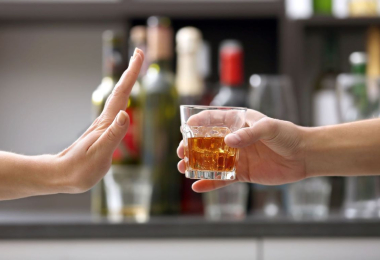De-Addiction Treatment

Alcohol and Drug Addiction Treatment by Dr. Dashleen Kaur
Treatment for alcohol and drug addiction encompasses a range of approaches, including counseling, behavioral therapy, medication, and other supportive services. Dr. Dashleen Kaur is renowned for his expertise in alcohol addiction treatment in Amritsar, offering comprehensive care to individuals struggling with substance use disorders.
Detoxification and Medically Managed Withdrawal
Detoxification involves the elimination of alcohol or drugs from the body, often leading to unpleasant or even life-threatening withdrawal symptoms. However, detoxification alone does not address the psychological, social, and behavioral aspects of addiction, which are essential for achieving long-term recovery. When detoxification is conducted under medical supervision and with the use of appropriate medications, it is referred to as "medically managed withdrawal," whether administered in an inpatient or outpatient setting.
Residential Treatment
The residential treatment model typically involves a 6-12 week inpatient rehabilitation program followed by outpatient therapy and engagement in self-help groups like Alcoholics Anonymous. Continuing participation in outpatient or aftercare programs is crucial for sustained recovery. Long-term residential treatment provides round-the-clock care and employs a highly structured approach with various activities aimed at helping patients recognize damaging beliefs and behaviors, and adopting new, healthier ways of living free from drugs or alcohol.
Individualized Counseling
Individualized substance counseling is tailored to address not only substance or alcohol use but also related issues such as employment status, family and social relationships, and the patient's after-recovery program. This holistic approach ensures that the individual receives support and guidance in various aspects of their life that may be affected by their substance use, facilitating a more comprehensive and effective recovery process.
Group Counseling
Group therapy is used for social reinforcement offered by peer discussion and to helps promote drug free lifestyles.
Behavioral Therapies
Behavioral treatments help patients in treatment for addiction, by providing incentives to them to remain abstinent, change their attitude and behavior towards substance, and enhance their life skills to handle stressful situations that may trigger craving for substances and prompt compulsive abuse.
12-Step Therapy
Twelve-step therapy is designed so the person becomes actively involved in 12-step self-help groups and promotes abstinence.
Family Therapy
Family Therapy targets family members important in the patient's recovery. Building communication between family members, Normalizing relationships, helping the family to understand addiction as a disease, and the role of continuous monitoring and aftercare are some points that are emphasized.
FAQs
Deaddiction
- What is de-addiction treatment?
- Can I get rid of addiction on my own?
- Why I need psychiatrist for addiction?
- Do I need to opt for residential treatment programmes?
- What are some non-pharmacologic methods of de-addiction?

